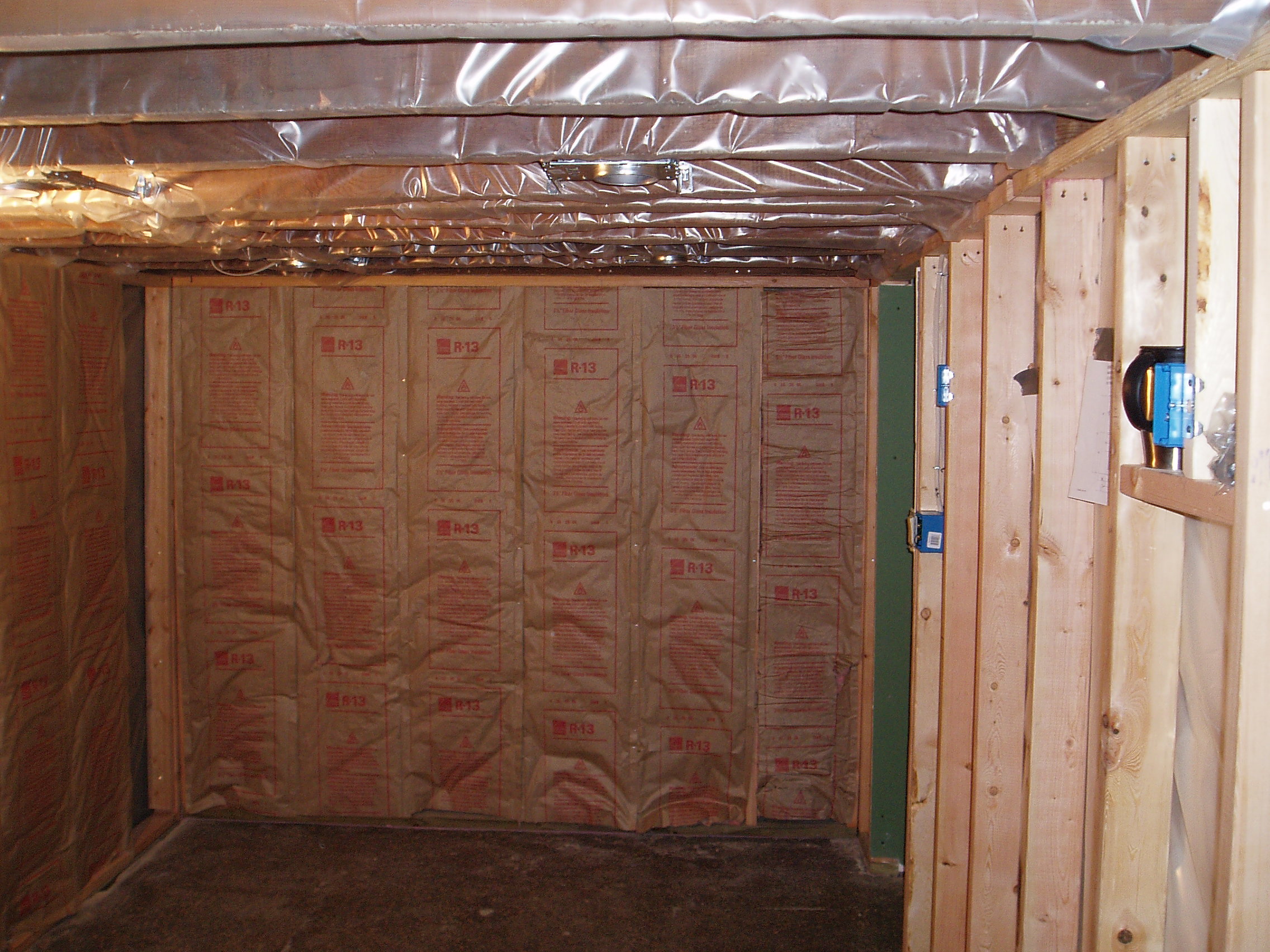Preserving wine in their pristine condition requires careful planning and the establishment of proper measures that maintain the right conditions for storage. In this context, getting a vapor barrier and proper insulation is of utmost importance in maintaining wines. The ground temperature of most regions varies significantly with seasons. This means that an uninsulated wine cabinet will be subjected to harsh temperature ranges that can possibly ruin the stacked wines.
Importance of insulation
A wine that is not stored in a room with controlled temperature does not age well at all. Effective cooling is a prerequisite for storing wines for long durations. Without proper cooling, a wine can easily deteriorate and result in a loss of investment. This is where insulation comes into the picture. The environment outside the cellar is typically warmer than the environment inside. In order to maintain this temperature difference and stop the warm air from affecting the cellar, proper insulation is called for.
The cool environment of the cellar post-insulation keeps the wine in their vintage condition and makes them ready for tasting whenever the owner wants. The best way of achieving insulation is by sealing the wine room with proper insulating material. Insulation prevents the cool air from the cellar from escaping and stops the warm air from the rest of the house from entering. Added to this, if there is a refrigeration system installed, then the insulation allows the refrigeration to function to its best capacity. Also, with insulation, there is less load on the refrigeration system which can result in lower power consumption. Both the walls and ceilings of a wine cellar need to be insulated before installing racking measures, cooling system, doors, and flooring. One of the older methods of insulating a wine cellar is by installing a sheet of plastic along with proper insulation material. The plastic sheet acts as the vapor barrier whose significance is explained later. There are also materials that act as both insulation and vapor barriers.
The best kind of insulating material is closed-cell spray foam as it acts as both insulator and vapor barrier. The compact structure of the cells in spray foam allows it to expand upon installation and create a completely airtight seal. It not only provides the perfect insulation but also prevents dust and pollen from entering the cellar. While closed-cell spray foam insulation is expensive in the beginning, it pays off in the long run. It perfectly preserves the wine, puts less pressure on refrigeration systems and acts as a vapor barrier. It also eliminates the need for any kind of PVC piping. It thus drastically lowers the overhead costs of establishing a proper wine cellar. It is not enough to just insulate the walls of the cellar. The doors, ceiling and the floor must also be properly insulated to maintain the perfect conditions that are required for the proper aging of wine.
[insert_callout]
On the vapor barrier
One of the most effective ways of controlling the climate inside a wine cellar is by installing a vapor barrier. A lot of cellars today are not aware of what vapor barriers are and their effectiveness of preserving wines. A vapor barrier is basically an all-around shield that exists between the wine cellar and the outside world. Unlike insulation, a vapor barrier doesn’t prevent the stop warm air from entering the cooler environment of a wine cellar. It only controls the environment of the space. Humidity control is the prime function of a vapor barrier.
In order to better understand the importance of a vapor barrier one needs first to understand what happens when hot and cold environments mix together. When we take a cold bottle of water from the fridge, the cold environment of the bottle comes in contact with the hot environment of the house. This causes condensation to build upon the surface of the bottle. The same thing can happen to a wine cellar without a protective barrier. The build-up of condensation can ruin the wines stored in the cellars.
All kinds of wine cellars require a vapor barrier irrespective of their design or location. A climate-controlled wine cellar is best for preserving wines. A refrigerated wine cellar requires insulation. With insulation comes the separation of hot and cold environments. This naturally causes the need for a vapor barrier. Additionally, in extremely humid regions a vapor barrier stops moist air from entering the cellar which can lead to the growth of molds. Conversely, in dry regions, a vapor barrier regulates the humidity in the cellar. A vapor barrier is typically installed between the foundation walls and the insulation. In effect, it is present outside the wine room. As mentioned above, closed-cell spray foam is the best coating for wine cellars as it acts as both insulation and vapor barrier. When the polymer sheet skims over it begins to act as a vapor barrier. Also, due to the expanding nature of closed-cell spray foam, it fills up any kind of cracks or crevices that might be present in the structure of the cellar. When a wine cellar doesn’t have a vapor barrier, it allows condensation to happen which dampens the insulation. While it gives way to the growth molds, it also can weaken the integrity of the cellar walls. Added to this, the refrigeration system needs to work harder for maintaining the right humidity inside the cellar.
It is always a wise decision to hire a professional for remodeling cellars and cabinets for storing wines. A professional knows about the exact conditions that are required for the aging of wine and how to establish them in customized settings. It is difficult to take into account various factors such as doors, windows, cracks and crevices when remodeling is done without a professional. Wines are one of the most delicate and exquisite beverages which calls for proper handling and storage. If one wishes to taste the wine and experience what their investment got them, then an insulated wine cellar with a vapor barrier is a must.



